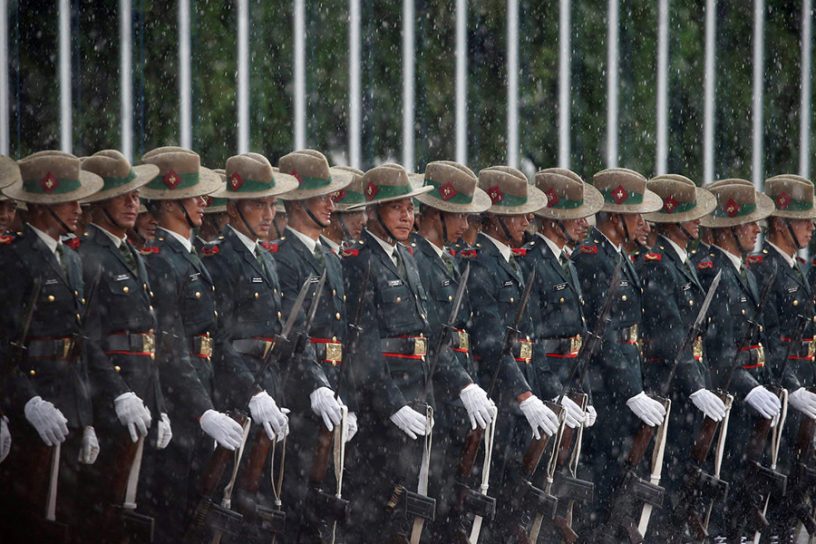
Nepal’s vibrant role in exercising military diplomacy with the great and emerging powers is immensely triggered by neutrality and non-alignment, which are also the foreign policy objectives of Nepal, say the authors.
Authors
Harsh Mahaseth, Assistant Professor at Jindal Global Law School, and a Senior Research Analyst at the Nehginpao Kipgen Center for Southeast Asian Studies, Jindal School of International Affairs, O.P. Jindal Global University, Sonipat, Haryana, India.
Ananya Shukla, law student, Chanakya National Law University, Patna, Bihar.
Summary
From the very inception of Nepal as a modern nation state, its geopolitical status was clear and in response, the role of military diplomacy in securing Nepali sovereignty from the Great Powers of the time was anticipated by its founders.
The predominance of Military Diplomacy in Nepal’s foreign policy naturally arose from Nepal position as a buffer state landlocked between the two Great Asian Military Powers of India and China.
The Gorkha Kingdom, the precusor state to modern Nepal was founded by Prithvi Narayan Shah, who established the Kingdom in 1768 with the conquest of the dominant power in the region at the time, the Kingdoms of the Kathmandu valley.
King Shah famously quipped that the unified kingdom that he had founded was “a yam between two boulders”. Shah’s aphorism contrasts the small squishy starchy tuber of Nepal against the two massive boulders of the Qing Empire and an ascendant British Raj.
Though the internal political structure of Nepal has shifted dramatically several times since its founding, Nepal’s status as the proverbial yam persists though the boulders have morphed into modern day India and China.
Though the two massive boulders to the North and South seem like they will eventually absorb the soft vulnerable yam, not only has Military Diplomacy played a leading role in securing Nepal’s sovereignty in the Colonial Context, it has also served the Nepali National Interest in the Post- Colonial Era.
Published in: Modern Diplomacy
To read the full article, please click here.


